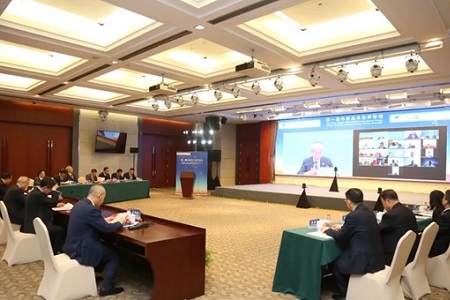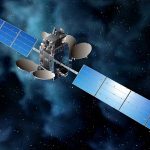The participants at the forum included representatives from nearly 50 African nations.
 China and Africa will strengthen their communication and cooperation in promoting and using the Beidou Navigation Satellite System, according to an international forum in Beijing.
China and Africa will strengthen their communication and cooperation in promoting and using the Beidou Navigation Satellite System, according to an international forum in Beijing.
Officials, industry leaders and researchers from China, several African nations and the African Union shared their thoughts at the First China-Africa Beidou System Cooperation Forum in Beijing and agreed to take advantage of the Beidou system to benefit social and economic development in Africa.
He Yubin, Chairman of China Satellite Navigation Committee, said at the forum that his committee is willing to share its experience and expertise of Beidou’s applications with Africa and work with African countries to design Beidou-based solutions for their socio-economic development.
China will join hands with Africa to promote Beidou-based services on the continent to foster local industries and businesses and help to create more jobs and reduce poverty.
Xu Hongliang, secretary-general of China National Space Administration, added the administration is dedicated to sharing China’s space achievements with Africa to nurture the continent’s science and technology. It is also determined to improve space industry professionals’ exchanges and training to facilitate African countries’ efforts to enhance their own space capability.
Yang Changfeng, Beidou’s chief architect, read a document at the forum about both sides’ vision for promoting cooperation in Beidou applications.
Beidou is currently China’s largest space-based system and one of the four global navigation networks, along with the United States’ GPS, Russia’s GLONASS and the European Union’s Galileo.
In June 2020, the final satellite to complete Beidou’s third-generation network was lifted by a Long March 3B carrier rocket at the Xichang Satellite Launch Center in Sichuan province and was placed into a geostationary orbit about 36,000 kilometres above the Earth.
Since 2000, a total of 59 Beidou satellites, including the first four experimental ones, have been launched from Xichang on 44 Long March 3-series rockets, with some of them having retired.
Beidou began providing positioning, navigation, timing and messaging services to civilian users in China and other parts of the Asia-Pacific region in December 2012. At the end of 2018, it started providing basic global services.
Now, there are 30 third-generation Beidou satellites in three types of orbit 24 in medium-Earth orbits, three in inclined geosynchronous satellite orbits and three in geostationary orbits.















































































